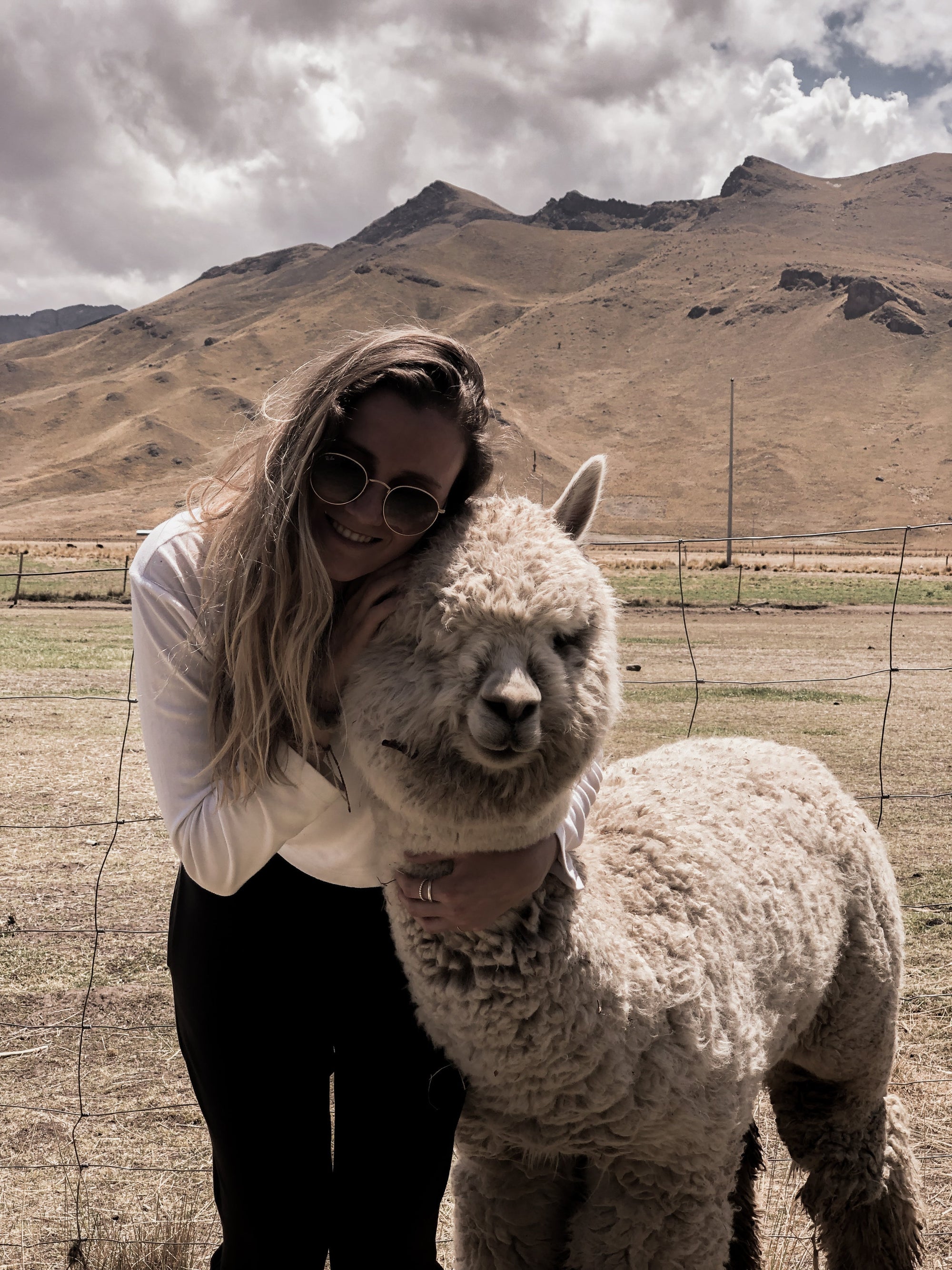At La Sierra, transparency is at the heart of everything we do, and we love sharing insights into our supply chain with you. Part of this involves answering your questions…
One we hear often is: "Are Alpacas harmed for their wool?”.
Short answer is NO, absolutely not. Shearing of Alpacas does not inherently harm these beautiful animals. Our shearing practices are designed to safeguard the welfare of these gentle animals, all while upholding our ethical standards.
Let’s explore this a bit deeper together….

Why Do Alpacas Need to be Shorn?
Shearing Alpacas is not just a grooming necessity—it's essential for their health and well-being. Without regular shearing, Alpacas can suffer from various issues, such as impaired vision due to overgrown fleece, overheating, and skin conditions from dirty, matted wool. Left unmanaged, the weight of their fleece can even pose life-threatening risks.
Understanding the necessity of shearing is key; this is why we advocate for ethical shearing practices, ensuring every Alpaca lives a healthy, comfortable life.
Our Practices and Animal Welfare with Shearing
Each spring, as the weather warms in Peru, Alpacas are gathered up for their annual group haircut. This process is done with the upmost care and efficiency. Multiple experienced shearers work on one Alpaca at a time, completing the process in mere minutes to ensure minimal stress.
For the shearing method used, we adhere to the ground-restraint method, which is recognised for its safety and effectiveness in preventing injury.
How are any cuts that may occur during this process treated?
Any rare cuts are treated straight away with a natural purple solution made from gentian violet flower, ensuring quick healing without resorting to harsh chemicals. This does not occur often because of the method of shearing used, but it’s nice that the farm has this procedure in place to stop any cuts from getting infected.

Addressing the Darker Side of the Industry
We want to recognise that not all parts of the industry are perfect. Like each and every industry, where humans are part of it, there is potential for there to be a darker side. There have been reports from PETA organisation of mistreatment, particularly in large-scale operations which are focused on mass production. A complaint was filed with the local police against 5 shearers at one of the big farms and these men are now being investigated for animal cruelty.
Since this report was released, some big brands such as UNIQLO started to ban Alpaca in their products. I do not necessarily agree with this decision as the negative actions of a few do not reflect the entire industry, and this has the potential to do great harm to hundreds of thousands of people, mainly indigenous people whose livelihoods are intertwined with the Alpaca industry.
The problem lies with mass production and the lack of oversight in large-scale operations. People are rushing to complete a job and, because of this, animals can suffer from inadequate care and treatment. It's crucial to differentiate between these large-scale operations and the many small farms where Alpacas are lovingly tended to and form an essential part of local culture and economy.
The Importance of Supporting Ethical Practices
In Peru, the Alpaca plays a crucial role in the social and economic well-being of many communities, particularly among indigenous people. Most local farmers, including those we partner with, understand their livelihood is tied to their Alpacas. They know if they treat their Alpacas well, their life will also improve. These people are connected to their lands and their animals with deep respect and care.
The positive aspects of the Alpaca industry (economically, socially, environmentally) outweigh the negative actions of these men. By supporting ethical and sustainable Alpaca farming practices, we can help nurture these positive impacts while advocating for a more responsible industry.

We are committed to upholding ethical shearing standards, which is why we personally visit the farms from which we source our fibre. We ensure that alpacas are treated with kindness and respect, and that the wool-gathering process is as gentle on them as it is on our planet.
Opting for small-scale production from independent designers with transparent and ethical supply chains is a powerful way to make a difference. By choosing brands like ours, you reinforce your commitment to eco-friendly and ethical living. Together, we can continue making choices that protect our Earth and all its inhabitants. Your mindful decisions not only enrich your life but also help sustain communities and preserve cultural heritage.
Browse our collection of ethically produced Alpaca Knitwear and Living items online now!



